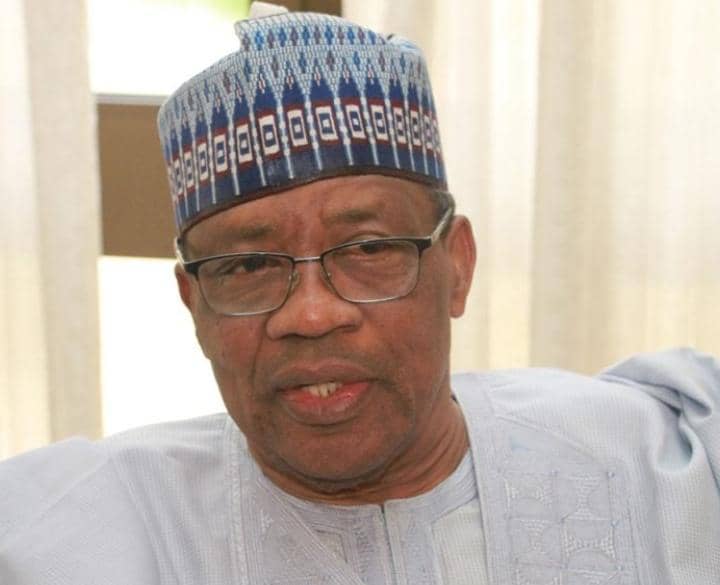Former military leader, General Ibrahim Badamasi Babangida (IBB), remains a central figure in Nigeria’s political history.
IBB ruled Nigeria from August 27, 1985, to August 26, 1993.
His administration introduced significant reforms and faced intense scrutiny.
Diaspora digital media (DDM) revealed that IBB’s government annulled the June 12, 1993, presidential election, sparking a national crisis.
Many Nigerians remember IBB as a leader with both achievements and controversies.
Born on August 17, 1941, IBB grew up in Minna, Niger State.
He joined the Nigerian Army in 1962 and quickly rose through the ranks.
IBB played a key role in the 1966 counter-coup that shaped Nigeria’s military politics.
His rise to power was marked by political strategy and tactical maneuvering.
IBB overthrew General Muhammadu Buhari’s military government in 1985.
His administration introduced the Structural Adjustment Program (SAP) to revive Nigeria’s economy.
SAP aimed to reduce government spending and encourage a free-market economy.
Critics argue that SAP increased poverty and hardship for ordinary Nigerians.
IBB implemented economic policies that attracted foreign investment and improved infrastructure.
His government liberalized the banking sector, leading to a boom in financial services.
IBB established the National Directorate of Employment (NDE) to address youth unemployment.
His administration founded the Federal Road Safety Corps (FRSC) to improve road safety.
IBB relocated Nigeria’s capital from Lagos to Abuja in 1991.
This move was intended to ease congestion and promote national unity.
IBB’s leadership style was both strategic and controversial.
He was known for using political patronage to maintain influence.
Many accuse IBB of institutionalizing corruption within Nigeria’s political system.
His government introduced the two-party system to strengthen democracy.
IBB established the Social Democratic Party (SDP) and the National Republican Convention (NRC).
He planned to transition Nigeria to civilian rule in 1993.
On June 12, 1993, Nigeria held a presidential election.
Chief Moshood Kashimawo Olawale Abiola of the SDP won the election.
The election was widely regarded as Nigeria’s freest and fairest poll.
IBB annulled the election results, citing irregularities and security concerns.
The annulment led to nationwide protests and political unrest.
Many Nigerians saw IBB’s decision as a betrayal of democracy.
His government struggled to contain the growing opposition.
In response to the crisis, IBB promised to step down from power.
On August 26, 1993, he handed over to an interim government led by Chief Ernest Shonekan.
The Shonekan administration lasted only three months before General Sani Abacha took over.
IBB’s decision to annul the election remains one of Nigeria’s biggest political controversies.
Some believe IBB was pressured by military elites to prevent civilian rule.
Others argue that he acted to protect national security and unity.
IBB went into political retirement but remained influential behind the scenes.
He occasionally made public statements on national issues.
Many politicians sought IBB’s advice due to his vast political experience.
IBB’s legacy is a subject of debate among historians and analysts.
Supporters praise him for his economic and infrastructural developments.
Critics blame him for entrenching corruption and delaying democracy.
IBB’s role in Nigeria’s history cannot be ignored.
His leadership shaped the nation’s political and economic trajectory.
He remains a symbol of military influence in Nigerian politics.
IBB’s name often resurfaces in discussions on governance and democracy.
Some believe he could have done more to strengthen Nigeria’s democratic institutions.
Others argue that his policies laid the foundation for future administrations.
IBB’s impact on Nigeria’s economy is still felt today.
His structural reforms influenced subsequent governments’ economic strategies.
Despite controversies, IBB remains respected by many for his leadership skills.
His supporters argue that he managed Nigeria during difficult times.
Critics maintain that his decisions created long-term political instability.
IBB’s influence extends beyond politics into business and strategic planning.
He is regarded as one of Nigeria’s most intelligent and calculating leaders.
His ability to navigate complex political situations earned him the nickname “Maradona.”
IBB’s governance style was marked by secrecy and political maneuvering.
Many analysts believe he controlled Nigeria’s political landscape even after leaving office.
His relationship with successive governments remained a topic of speculation.
IBB’s contributions to national development continue to be examined.
His administration modernized Nigeria’s telecommunications sector.
He prioritized infrastructural projects that expanded urban development.
IBB’s regime witnessed the rise of influential business moguls.
His government’s policies created opportunities for private sector growth.
Many wealthy Nigerians today benefited from his economic liberalization.
Despite his retirement, IBB’s political opinions still attract attention.
He often comments on national security and governance.
His insights on leadership are sought by politicians and analysts alike.
IBB’s views on Nigeria’s future remain influential in political circles.
He believes in the unity and progress of the nation.
IBB has called for dialogue to resolve Nigeria’s security challenges.
His legacy continues to shape Nigeria’s political discourse.
Many young Nigerians learn about IBB in history and political science classes.
His administration’s policies serve as case studies for governance analysis.
IBB’s name evokes strong emotions among Nigerians.
Some admire his strategic thinking and leadership.
Others criticize his handling of democratic transitions.
IBB’s influence on Nigeria’s military and political history remains significant.
His story is a crucial part of Nigeria’s journey toward democracy.
The debate on IBB’s impact will continue for generations.
His legacy remains a mixture of achievements and controversies.
IBB’s role in shaping modern Nigeria cannot be overlooked.
His decisions, both good and bad, left a lasting mark on the nation.
IBB remains one of Nigeria’s most discussed former leaders.
His contributions and controversies define a significant era in Nigerian history.
The nation continues to reflect on IBB’s leadership and its consequences.
His name will remain in history books as a key figure in Nigeria’s political evolution.
IBB’s life and legacy offer valuable lessons on leadership and governance.
Kindly share 🙏







